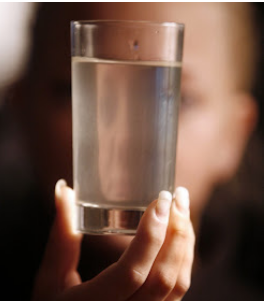What is TDS in Water and Why Should I Measure it?
Total dissolved solids (TDS) are dissolved substances that get into your water supply from natural and human sources. They include calcium, nitrates, chlorides and more. High levels of TDS can lead to unpleasant tastes, mineral build up, plumbing problems and reduced life of appliances.
When you’re looking to evaluate your home’s water quality, you may consider using a TDS test which measures the total dissolved solids in your water.
What Are Dissolved Solids?
Total dissolved solids come from many sources, both natural and man-made. Natural sources of TDS include springs, lakes, rivers, plants, and soil. For example, when water flows underground in a natural spring, it absorbs minerals, such as calcium, magnesium, and potassium, from rocks.
Human activity can also produce total dissolved solids in water. Pesticides and herbicides may come from agricultural runoff, lead may come from old plumbing pipes, and chlorine may come from water treatment plants.
When you use a TDS meter or other water testing tool, you’re measuring the total concentration of these dissolved solids in your tap water. The result is often expressed as parts per million, or ppm.
Why Does a High TDS Level Matter?
Total dissolved solids (TDS) is measured as the volume of water with the unit milligrams per liter (mg/L), otherwise known as parts per million (ppm). According to the EPA drinking water regulations, 500 ppm is the recommended maximum amount of TDS for your drinking water. Any measurement higher than 1000 ppm is an unsafe level of TDS.
What if your drinking water’s TDS level is above 500 ppm? Here are a few possible issues you may encounter: hard water, mineral buildup, plumbing corrosion, salty or bitter taste, reduced soap and detergent effectiveness, reduced usage life for water-using appliances.
For these reasons, many people turn to a TDS meter or other water testing tool to find out whether TDS levels could be negatively affecting their water quality and home.
What Can a TDS Meter Tell You?
A TDS meter can provide a high-level view of what’s in your water. By determining the TDS level in your water, we can advise you whether water filtration or water softening should be considered.
What Else Could Be in Your Water?
A TDS test will tell you the amount of dissolved solids in your water but other water quality issues may exist as well. For new homeowners, especially those on well water we recommend a full water analysis which will show levels of Chlorine, Iron, Sulfur, Lead, Copper, Arsenic, Chromium, Nitrate, Bacteria, and much more.
High levels of these materials can have important health implications, beyond producing unpleasant taste or smell. For example, while chlorine in water generally leads to unpleasant tastes or odors, the presence of lead or arsenic can lead to serious health issues.
For a more comprehensive look at your drinking water quality, you need a professional water test and consultation. A free, in-home test from Matilija can measure levels of total dissolved solids and other common water issues. At the end of your test and consultation, you’ll also get personalized recommendations for water filtration and softening solutions that will fit your unique needs.
Ready to get started? Schedule your free water test and consultation today.
Call us at (805) 963-7873 or visit www.getpurewater.com

